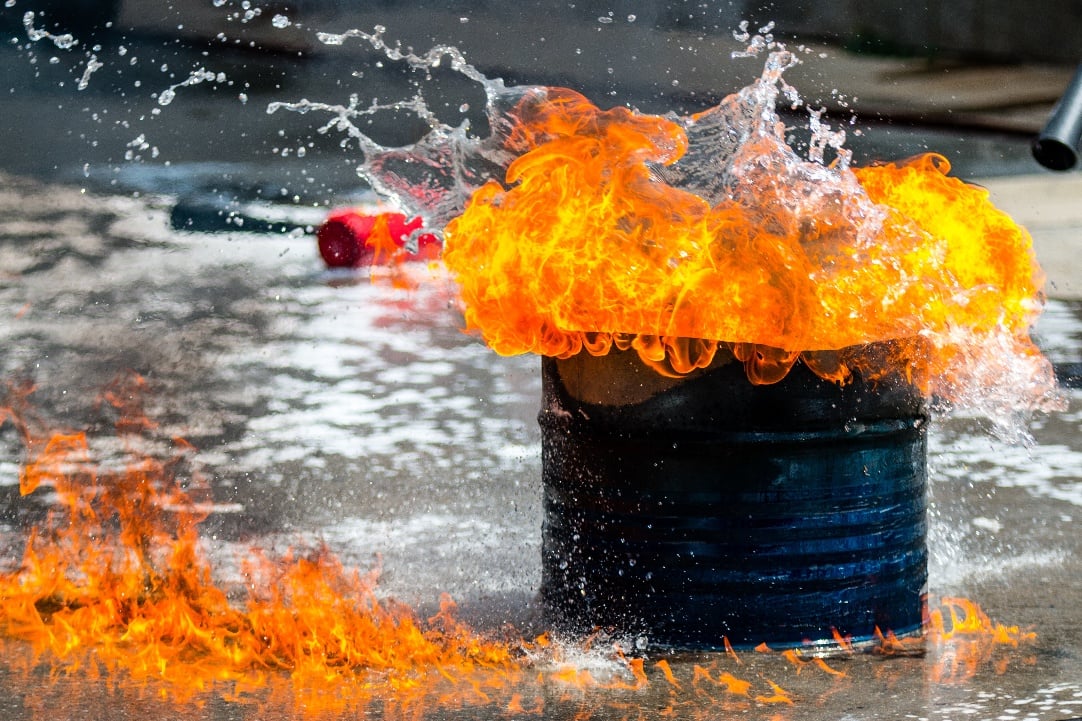August 20, 2019
Successful Event Planning: What’s Your Plan for When Disaster Strikes?
 Bad, worse and full-out tragedy. For event planners, “disaster” can range from your speaker being unprepared, to a microphone malfunction, to the Fyre Festival. No one wants to think that something truly disastrous will happen during their event, but the truth is that things do happen. And if you aren’t prepared, the outcome will likely be worse – perhaps catastrophically worse. Planning for the worst usually means you’re better equipped to deal with it if disaster really does strike.
Bad, worse and full-out tragedy. For event planners, “disaster” can range from your speaker being unprepared, to a microphone malfunction, to the Fyre Festival. No one wants to think that something truly disastrous will happen during their event, but the truth is that things do happen. And if you aren’t prepared, the outcome will likely be worse – perhaps catastrophically worse. Planning for the worst usually means you’re better equipped to deal with it if disaster really does strike.
There’s a side benefit to disaster planning for your event, too. The process forces you to consider every aspect of your event from a different perspective. That can uncover other potential problems you might have overlooked, and also opportunities to proactively improve. “Gee, I never realized that stretch of fence wasn’t covered by our security set-up.” Or, “wow, adding another emergency exit here would give us another entrance.” And, it should be no surprise, a veteran AV team will have the experience to anticipate and fix those kinds of issues with your sound, lighting, and staging.
Learn to differentiate between a glitch and a disaster
Every event requires flexibility. Remember that your audience is made up of humans who understand that things happen. They’ll take glitches with a smile as long as you make the best of the situation. Your speaker forgot her slides or video? Post them to your website afterward. The backdrop curtain is the wrong color? Your AV wizards can fix that with lighting.
Preparation is the key to preventing and fixing disasters
Your AV team is the Voice of Experience when it comes to preparing for a flawless event, so why not follow their lead? For example, you know a good AV expert is a stickler for rehearsals and run-throughs. Every act, every lighting, sound, and video element should be thought through. The extra time and money you budget for that is a cheap investment because that’s when AV teams uncover (crucial) potential problems in time to discuss with you how best to respond. (Or, better yet, fix the problem before it happens.)
That little issue with the unprepared speaker we mentioned above? Missing materials would have been discovered during rehearsal. The speaker might have had time to get back-up visuals, or at least you would have been forewarned.
Your AV team also never leaves home without backup mics and other equipment. They know things can go wrong despite preparation, so they are “over-prepared.” Attendee experience remains flawless.
Experience has also taught us the value of post-event debriefings. While details are fresh, it’s easiest to identify things that went wrong and how to improve for next time.
Emergency planning
Rehearsals and run-throughs can help uncover production-related problems, but you need an emergency plan as well. There are things you cannot control, but you’re responsible (as much as possible) for the safety and security of your attendees, indoors or out.
What if there is a widespread power outage or a natural disaster such as a tornado? What if there is an on-site emergency such as a bomb threat or an active shooter? What if you have to cancel the event for some reason, or the venue cancels on you? (Make sure there’s a weather clause in your venue contract that protects you from having to pay anyway, or gives you a future credit.)
Municipalities and other public entities typically require you to have an emergency plan in place before granting permits to use their property and/or facilities, especially if you’ll need to coordinate with their own first responders. The questions they force you to address will make you a better planner for every event you manage in the future.
Consider what types of serious problems could happen, and plan how you can realistically respond.
Enlist the help of first responders and your venue. Above all, make sure you’re able to instantly communicate during the event with first responders, your event management team, venue representative, security, etc. – using radios or a messaging app that keeps your conversations private.
And have a way to communicate instantly with attendees if something major happens during the event. Your AV team can usually help with this since they can operate lights and sound.
What if disaster does strike?
Remain calm, professional and composed. If you overreact you can be sure everyone else will, too. You’ve done everything you can to prevent problems, and you have a sensible plan in place should a true disaster occur.
Meanwhile, don’t stress too much about the “what ifs”. If you have contingency plans and quality team members in place, then you can enjoy your event. Chances are your “disasters” will be minor and your event will be an excellent experience for everyone involved.




